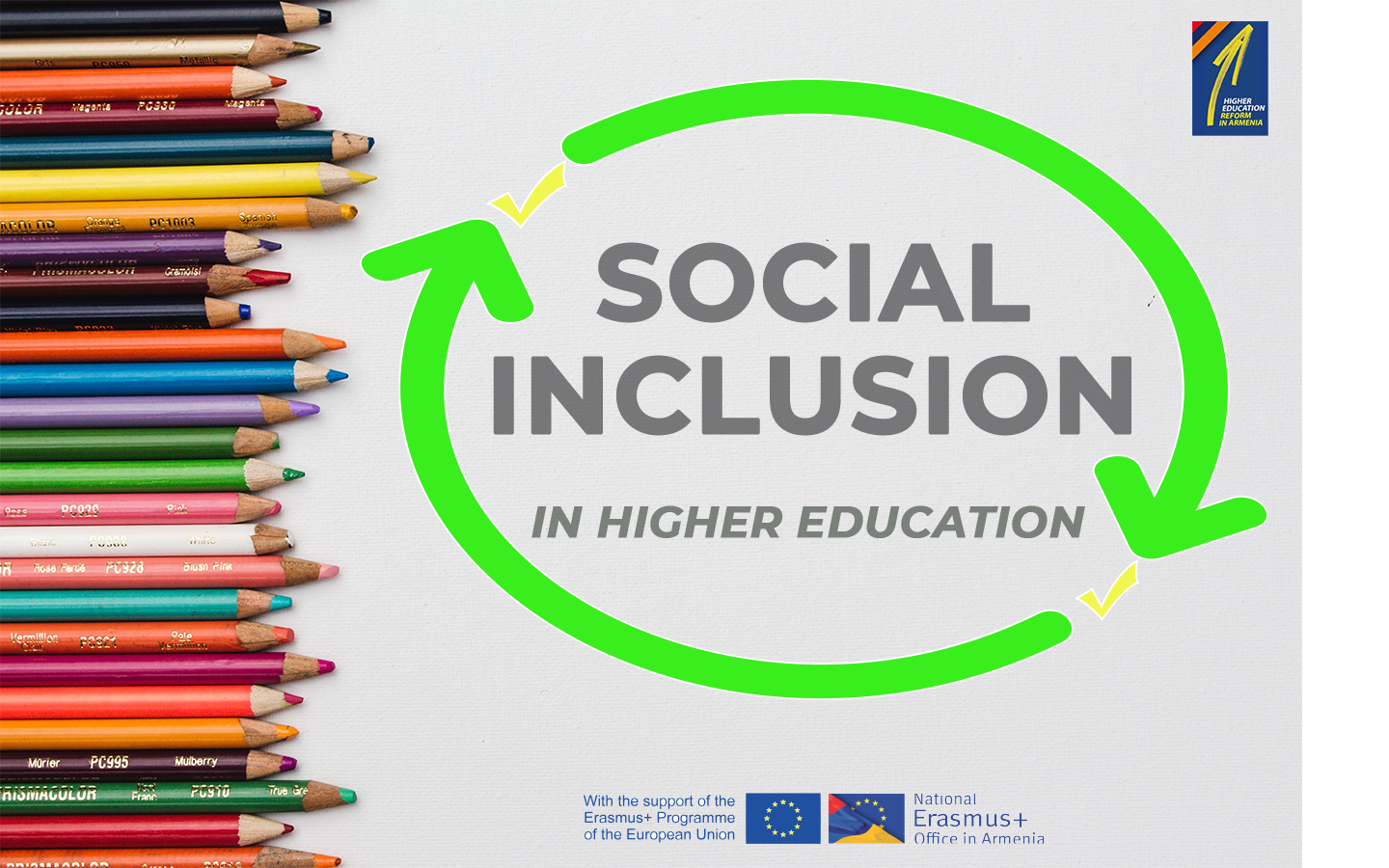Brainstorming Online Session on “Social Inclusion in Higher Education”
On July 3rd 2020, in preparation for the upcoming Erasmus+ Technical Assistance Mission (TAM) on “Social Inclusion in Higher Education,” NEO and HERE-Armenia team initiated an online meeting aimed at revealing the strengths, needs and interests of the Armenian universities central to inclusive education.
Representatives of the 10 Armenian universities, some of them already with sufficient experience in inclusive education, and a non-governmental organization “Bridge of Hope” shared their vision, attitudes and concerns towards inclusive higher education and proposed important concepts to be outlined on the agenda of the envisaged training- seminar.
Lana Karlova, Coordinator of NEO-Armenia, set and defined the online event goals and objectives; led the discussions on the event strategy from the perspective of the planner and attendees; sought the assistance of the university and NGO representatives in accomplishing the vision of the event with regard to building out the event content and selecting the right guest speakers.
Lusine Fljyan, HERE-Armenia team member and Vice-Rector of Northern University, facilitated the brainstorming session and touched upon the social dimensions of COVID-19 outbreak in Armenia and the importnace of containment strategies to be adopted by the universities to ensure equity of access to higher education.
Anna Gevorgyan, another member of HERE-Armenia team and lecturer at the American University of Armenia, focused on the importance of developing a common agenda for the TAM that would reflect the interests and needs of Armenian Universities.
Head of International Relations Office at Armenian State Pedagogical University (ASPU), Marianna Harutyunyan, whose education background is in inclusive education, emphasized the importance of the necessary competences, attitudes, knowledge and skills required of the teachers working in inclusive settings. Inclusive education needs a holistic approach and requires proper teacher training systems and learning environments to welcome diversity.
She also spoke about ASPU’s experience in using the Google classroom as an effective online tool for teaching. The platform has allowed for streamlined online collaboration for the past five years and helped in this rapid shift to online teaching and learning.
Hripsime Nazaretyan, representative of the Bridge of Hope (BoH) NGO, welcomed the initiative and highlighted the importance of fostering active dialogue and links between the universities and the NGOs that have become essential actors in the social field. BoH defends the rights of children and youth with disabilities and advocates for their access to basic education, community-based services and equal opportunities for independent living.
Varazdat Hovhannissyan from the National University of Architecture and Construction of Armenia (NUACA), shared his university experience on consolidating available resources to encourage the use of distance learning technologies among the students and staff. NUACA administration negotiated with the city and rural municipalities to convert their offices into online learning spaces for the students and teaching staff living in the remote areas to make sure all the students can get the education they are entitled to.
Vice-Rector of the Public Administration Academy of Armenia (PAARA) Thereza Khechoyan, focused on the difficulties the academy has faced in organizing internships for the students and the need to make this issue one of the topics for discussions during the forthcoming TAM.
Elvira Zargaryan, HERE-AM team member who also represents Shirak State University, talked about the students’ admission problems and emphasized the role of student support services in helping the students to solve the major organizational and technical challenges that the pandemic is causing.
Nune Jomardyan, Head of International Relations Office at Eurasia International University, proposed to tackle the issue of virtual onboarding of students amid COVID-19. The exceptional circumstances created by the pandemic is challenging the universities to rethink the ways they onboard new students. It is critical to establish a positive first impression with the newcomers, welcome them to the family and engage into the university’s culture.
Summing up, the online brainstorming meeting encouraged the attendees to be proactive in designing the programme for the training-seminar and incentivized them to contribute further for the specialized sessions.

